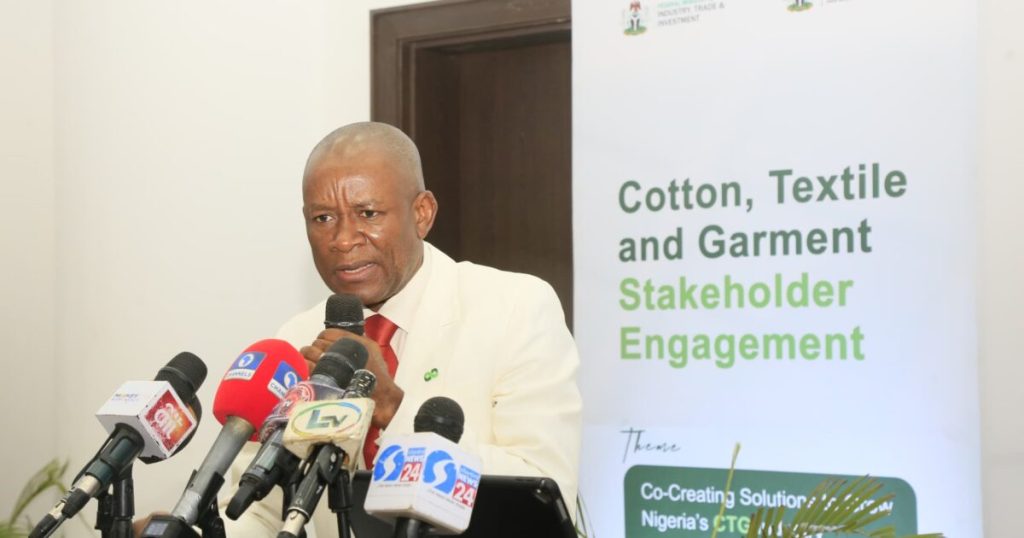Nigeria is embarking on an ambitious industrialization drive, spearheaded by the Federal Government, with the aim of transforming its economy and positioning the nation as a continental manufacturing powerhouse. This initiative, driven by the Industrial Revolution Work Group (IRWG), a cross-sectoral body inaugurated earlier this year, signifies a decisive shift from policy discussions to tangible action, focusing on concrete projects and measurable outcomes. The government’s commitment to immediate action is underscored by the Minister of State for Industry, Senator John Enoh’s declaration that the era of pilot programs and policy lip service is over, paving the way for full-scale industrialization.
The initial phase of this ambitious plan involves the establishment of strategically located industrial hubs across the country. These hubs will focus on key sectors with high growth potential, including agro-processing, textiles, and pharmaceuticals. Kano State will house agro-processing hubs, transforming cassava into ethanol and starch, creating employment opportunities in the process. Aba and Lagos will become centers for revitalized textile clusters, aiming to establish these cities as regional garment manufacturing and export hubs. Ogun State will host a pharmaceutical production enclave designed to bolster Nigeria’s medicine supply chains and reduce dependence on imports. These targeted interventions aim to leverage existing resources and expertise within each state, fostering regional economic growth and specialization.
The IRWG’s strategy rests on five foundational pillars: Financing and Investment Transformation, Energy and Infrastructure Modernisation, Regulatory Reforms and Ease of Doing Business, Product Standards and Market Expansion, and Human Capital Development and Industrial Innovation. These pillars are not mere theoretical constructs but are being actively implemented nationwide. The focus on financing and investment underscores the government’s commitment to attracting both domestic and foreign investment to fuel the industrialization process. Energy and infrastructure modernization are crucial for creating a conducive environment for businesses to thrive. Regulatory reforms and ease of doing business initiatives aim to streamline bureaucratic processes and reduce bottlenecks, making it easier for businesses to operate. Product standards and market expansion efforts will ensure that Nigerian products meet international quality standards and can compete effectively in global markets. Finally, human capital development and industrial innovation are essential for building a skilled workforce and fostering a culture of innovation.
The 16th National Council on Industry, Trade and Investment, held in Lagos, served as a platform to unveil these transformative projects and solidify the commitment to this new industrial agenda. The theme, “Accelerating Diversification by Leveraging Industry, Trade and Investment for Shared Prosperity,” reflects the overarching goal of achieving inclusive and sustainable economic growth. The Council reviewed 75 memoranda, including 40 information items and 30 actionable recommendations, demonstrating a clear focus on implementation and tangible outcomes. This emphasizes the government’s dedication to translating policy discussions into concrete actions, signifying a departure from past practices and a commitment to delivering on its promises.
The Minister’s call for all stakeholders to “move from rhetoric to results” underscores the urgency and seriousness of this undertaking. The IRWG is not just a government initiative; it is envisioned as a collaborative effort, requiring active participation from the private sector, sub-national governments, and development partners. The private sector, with its entrepreneurial spirit and investment capacity, is seen as a crucial driver of this industrial revolution. Sub-national governments play a vital role in creating enabling environments at the local level. Development partners provide technical expertise and financial support. By aligning with the IRWG, these stakeholders can contribute to unlocking financing for Micro, Small, and Medium Enterprises (MSMEs), activating dormant industrial zones, and building thriving, employment-generating clusters across the country.
The Minister’s message to the private sector and sub-national governments to “embrace this momentum with both hands” encapsulates the shared responsibility and the potential for transformative change. The IRWG presents a unique opportunity for Nigeria to convert its vast potential into tangible industrial might. This bold initiative signals a decisive shift towards a future where Nigeria is not just a consumer of manufactured goods but a producer and exporter, competing on the global stage and creating prosperity for its citizens. The success of this endeavor hinges on the collective effort of all stakeholders, working in concert to achieve a shared vision of a prosperous and industrialized Nigeria.


